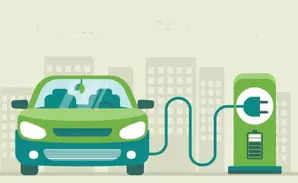
New Delhi: The Economic Survey has made a strong case for attracting investments from China. The logic is that it makes more sense for Chinese companies to manufacture products here which can also be exported. By the end of the day, this will be a win-win situation for both countries more so when China is now India’s largest trading partner.
There is no indication if the Centre will go ahead with this thought process given that there is still a lot of political tension when it comes to dealing with China. The wounds caused by the border clashes between the armed forces of the two countries are still raw and from India’s point of view, there is every reason to be circumspect about China.
Assuming that a thaw does happen and a go-ahead is given to sector-specific investments, does it makes sense to include the auto sector where Chinese brands are allowed to set up shop here? The likes of Great Wall Motors have already shelved their India plans even after announcing with great fanfare that it would be acquiring the General Motors plant near Pune (which is now part of the Hyundai Motor India kitty).
Great Wall Motors had waited for a long, long while but with India and China clearly in no mood to bury the hatchet, the company decided to pack up and leave . BYD, which has assembly operations at a facility near Chennai, wanted to go in for its next phase of expansion but the investment proposal was shot down. Changan Automobiles, one of the earlier entrants, exited when the top management realised that there would be no quick solution to the political hostilities.
Walk the talk
Has the time now come to walk the talk on the Economic Survey’s recommendation and open up investments from China’s automakers? “Much water has flowed under the bridge since 2020 when the border clashes broke out. China is now the world leader in electric cars and it makes sense for India to be aligned with its neighbour given its own interest in electrification for the auto segment,” an industry official told ETAuto.
China’s dramatic rise in the EV arena is giving the US and Europe the jitters with the result that both have imposed hefty import levies on cars being shipped in. While the US has slapped 100% on Chinese car imported, it is nearly 40% in Europe for different automakers. The justification of unfair trade practices just does not hold any water — on the contrary, it is more than evident that the West is paranoid about Chinese EVs flooding their markets and making homegrown brands redundant in the process.
The fact that there could be stiff retaliation coming from China is perhaps lost on policymakers in the West. All the top brands right from Volkswagen and Mercedes-Benz to GM and Ford have operations in China.
From India’s point of view, it has opted for electric as the cleanest solution for harmful vehicular emissions. It now needs to decide if it needs to gently open the doors to Chinese EV brands that can take the script forward. The Economic Survey has also spoken of the importance of India being part of the global supply chain and this simply means that the link with China needs to strengthen.
“India is absolutely right in keeping China at bay especially with all the needless, unprovoked aggression along the border. We must be very careful and not let them walk all over us as is their wont. Yet, a beginning must be made somewhere since India cannot remain isolated in global trade,” says a top executive of an auto component manufacturer.
Raising the bar
Another official points out that India’s own auto parts exports may have increased over the years but they are largely related to the powertrain. “Today, the need of the hour is raising the bar in electronics, sensors etc where we need more knowhow. This is something that the Chinese can provide since they are ahead of the game in EVs,” he says.
As he puts it, the key is “not to genuflect to China” but read out the rules clearly with the caveats clearly articulated to investors. In all likelihood, India will not allow any Chinese company to set up a 100% subsidiary but insist that they rope in a local partner. The MG Motor India saga is a case in point where the parent company in China, SAIC, divested 35% to the JSW group.
Going forward, BYD may follow a similar route where the partner could even be an energy entity like Reliance or Adani and not necessarily some company in the automotive space. Perhaps even some top suppliers could be sounded out given that Hungary recently saw BYD enter into a partnership with Forvia, the French auto component maker.
The two have already teamed up in Thailand and the extension to Europe marks an interesting business model. It is also happening at a time when policymakers in the EU are paranoid about Chinese EV investments while some countries are literally rolling out the red carpet for brands like BYD, Geely etc.
“Make no mistake, the Chinese are on the warpath in EVs and scouting for new bases across the world. Latin America and Asia will see a lot of action even though the US and Europe are keeping them at bay,” the executive quoted earlier in this story said.
Partnership model
Leapmotor of China, which is now part of the Stellantis fold, will enter Europe in the coming months with India also on its radar. The fact that it is not a standalone Chinese entity will facilitate an easier passage to India. Effectively, it means that a partnership model will be welcome where the interests of the country concerned (India in this case) are protected.
India is keen on creating an electric ecosystem but will ideally need someone like China to give the big push forward. The Budget’s recent announcement on duty cuts of critical minerals needed in electrification can act as a spur to generating greater levels of localisation. When sufficient levels of scale are achieved, EVs will become more affordable.
All these are early days yet and there is no telling how the story will unfold in the coming months. There could be some opposition coming from local carmakers who will be concerned about the Chinese invading their turf. The Centre is bound to tread carefully and ensure that things do not get out of control especially with little love lost between India and China.
Beyond this, it is now getting apparent that electric is not being seen as the go-to solution in the quest for clean air. Other pragmatic options like compressed natural gas and hybrids are also now part of the green fuels parade while biofuels could also have a role to play in the future.
With geopolitical tensions growing by the day, India needs to play its cards adroitly. Ties with Russia continue to be strong even while the latter has not cut back its aggression against Ukraine. China and Russia are close allies and India will need to protect its own interests even while balancing out its relations with the US where there will be a new occupant in the White House by January 2025.

